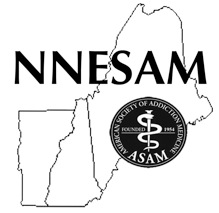Meet the Speakers

Building AMNet: A focus on office-based practices – Implications for research with Diana Clarke, PhD.
Description: Over 2 million Americans have opioid use disorder (OUD), of which only about a quarter receive treatment. Much OUD outpatient treatment is delivered outside of Opioid Treatment Programs. These settings are crucial in responding to the epidemic, yet relatively little is known about the type of patients treated in these practices, the type and quality of services they receive, and their outcomes. The Addiction Medicine Practice-Based Research Network (AMNet) focuses on non-OTP outpatient settings to address this gap. From a clinical and research perspective, AMNet will provide data for quality improvement activities as well as a data repository that can be used to help identify ways to address the country’s opioid epidemic. This session introduces the AMNet, which builds upon APA’s IRB-approved national patient registry, PsychPRO. We will discuss the importance of focusing on outpatient settings that treat patients with OUD and other substance use disorders, elaborate on the challenges and benefits of this focus and discuss AMNet’s potential as an ongoing flexible learning collaborative.
Objective(s): Understand the role of office-based practices in OUD research and AMNet.
Diana E. Clarke, PhD, is the Managing Editor of APA Division of Research and holds the position of Adjunct Assistant Professor at John Hopkins Bloomberg School of Public Health’s Department of Mental Health. She is a psychiatric epidemiologist and research statistician and serves as a Board Member of the International Academy of Suicide Research.

Patient-reported Assessments and Quality Measurements in Addiction Medicine Practice-based Research Network with Robert Philip Schwartz, M.D.
Description: This session will focus on AMNet’s patient reported outcome measures (PROMS). We will discuss the importance and clinical implications of using the AMNet’s battery of standardized assessment tools to assess and monitor patients’ symptoms, and outcomes, and track the effectiveness of treatment and patient outcomes over time. How PROMS can be used for quality improvement will be explored.
Objective(s): Describe the importance of assessments and quality of care in OUD treatment; Discuss the use of AMNet’s PROMS and quality measures in monitoring patient progress.
Robert Schwartz, M.D., is a psychiatrist and Medical Director of the Friends Research Institute. Through numerous National Institute on Drug Abuse funded grant awards, he has studied pharmacotherapy for opioid use disorder in the community and in correctional settings. He recently served as the Chair of the SAMHSA’s Treatment Improvement Protocol (TIP 63) on Medications for Opioid Use Disorder. Many of Dr Schwartz’s over 200 scientific publications are focused on substance use in primary care and on the treatment of OUD. He is the Principal Investigator of the NIDA-funded study of AMNet, a practice-based research network for addiction medicine providers.

Using PsychPRO as a Platform & Recruitment with Debbie Gibson.
Description: The third and final section of the AMNet presentation will discuss the use of APA registry, PsychPRO as a platform in data collection and recruitment of practices and providers in AMNet.
Debbie Gibson, MSc, currently serves as the Managing Director for APA’s PsychPRO clinical data registry overseeing the development and implementation of the program. She is an epidemiologist and health informatics subject matter expert with a strong health quality policy and reporting background having worked with the Ontario Ministry of Health and Long-term Care in Toronto (Canada), primarily in establishing the provincial Patient Safety Reporting Program in hospitals throughout the region
Objective(s): Discuss the use of PsychPRO as a platform in data collection and recruitment.

Use of Injectable Buprenorphine for Office-based Treatment of Opioid Use Disorder with John Brooklyn, M.D.
Description: Dr. Brooklyn will describe the indications for and management of injectable forms of buprenorphine.
Objective(s):
- Understand why buprenorphine is necessary to treat opioid use disorder.
- Understand the scientific bases for injectable forms of buprenorphine.
- Understand the management of injectable buprenorphine in the office setting
John Brooklyn, M.D., graduated from Brown University Program in Medicine and is Board Certified in Family Medicine and Addiction Medicine. He is an Associate Clinical Professor on the UVMMC Family Medicine and Psychiatry faculty and the physician expert in the UVM Center on Rural Addiction. He is the Medical Director of the Howard Center Chittenden Clinic Hub and the Baymark St. Albans Hub. He continues as a Family Physician at Community Health Centers of Burlington.
He has been a strong advocate for people with substance use disorders to be integrated into medical homes and conceived of the internationally recognized VT Hub and Spoke Model to integrate the treatment of opioid use disorders in the general population. He helped create CHARM, an integrated nationally recognized model to treat pregnant opioid users and their children. He is a national mentor for substance use disorder treatment and a trainer for students, residents and faculty members throughout the US. His interests remain primary care, interface of behavior and health, promotion of healthy lifestyles, preventative care, treatment of substance use disorders, mindfulness, and motivational interviewing. He is using technological solutions to increase access to opioid agonist treatment and directs the tele-monitoring project at the Chittenden Clinic.

The Medical Management of Alcohol Use Disorder-How to Help Your Patients Get Sober with Mark Publicker, M.D.
Description: A review of current evidence based efficacy of medication in the treatment of alcohol use disorder, placed in the context of a review of the current known neurobiology, epidemiology and lethality of the disorder. Very clear, practical, how-to information for primary care providers.
Objective(s): Participant will report that the benefits of medication in alcohol use disorder were clearly demonstrated. Participant will report acquiring a clearer understanding of the need for more patients with alcohol use disorder to have access to medication interventions aimed at alcohol use disorder.
Mark Publicker, M.D, DFASAM, DABAM, has practiced addiction medicine for more than three decades. He is the Past President of the Northern New England Society of Addiction Medicine and Past President of both the Virginia and Pennsylvania Societies of Addiction Medicine. He was the Editor-in-Chief of the American Society of Addiction Medicine magazine. Dr. Publicker is a Distinguished Fellow of the American Society of American Medicine and a Diplomate of the American Board of Addiction Medicine.
In his career he was Chief of Family Medicine and Chief of Addiction for an HMO in Pittsburgh, Chief of Addiction Medicine for Kaiser Permanente in the Washington, DC area and most recently Medical Director and staff clinician in Portland, Maine for Mercy Hospital’s Recovery Center.
He has just retired from private practice in Portland, ME. He is working with the Lunder-Dineen Health Education Alliance to develop and disseminate evidence-based education about substance abuse and addiction. Lunder-Dineen is a collaboration between the Lunder Foundation and Massachusetts General Hospital.
A nationally known educator and a passionate advocate for addiction treatment, Dr. Publicker has taught addiction medicine in China and helped develop a residential treatment program for drug-addicted homeless boys in Turkey. In 2009. he was named “Caregiver of the Year” by the Maine Hospital Association and Down East Magazine named him Maine’s “Top Doctor in Addiction Medicine” in 2014 and 2015. In 2019 he has just awarded the American Society of Addiction Medicine’s Lifetime Achievement Award and was just awarded ASAM’s Presidential Award.

The Role of Decriminalization and Legalization in Addressing Substance Use Disorders with Shawn Ryan, M.D.
Description: Examine past and present efforts and future potential of addressing substance use disorders by limiting legal penalties for possession and use, coupled with efforts to direct affected individuals toward harm reduction services and substance use disorder treatment.
Objectives: Examine past and present efforts and future potential of addressing substance use disorders by limiting legal penalties for possession and use. Discuss how to support harm reduction services and direct individuals to appropriate substance use disorder treatment.
Shawn Ryan, M.D., MBA, FASAM, originally trained as an emergency physician at the University of Cincinnati and simultaneously obtained his MBA while completing his residency. For over 12 years, Dr. Ryan has practiced in the Greater Cincinnati area, and for part of that period, he functioned as a hospital administrator (Department Chairman of Quality and Patient Safety). During this time, he became acutely aware of the issue of heroin/opioid abuse in the region and for the past 7 years has been working tirelessly to make a difference in his community. Dr. Ryan serves on many regional, state, and national committees/workgroups focused on turning the tide of this epidemic. He is the immediate-past president of the Ohio Society of Addiction Medicine and the current Chair Legislative Advocacy for ASAM. Dr. Ryan is very excited to continue to work in the field of addiction medicine and to have the opportunity to substantially impact the treatment needs of our region. Dr. Ryan is one of the founders of BrightView and is responsible for strategic development, alignment of operations and medical practice, clinical and outcomes research, and maintaining focus on the mission and vision of the company. He is both a board-certified addiction specialist and emergency physician.
